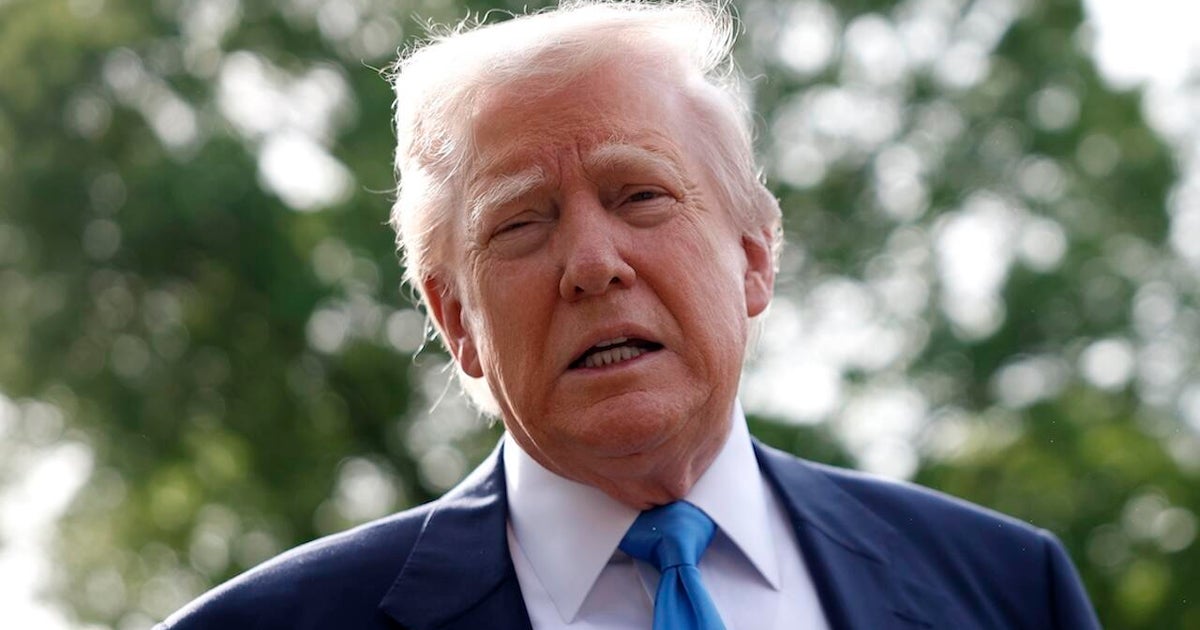
President Trump said he “could” call up El Salvador’s president to secure the return of Kilmar Abrego Garcia, who was removed from the U.S. last month and sent to a Salvadoran prison in what a government official called an “administrative error.”
Mr. Trump’s remarks — made in an interview that aired Tuesday with ABC News — come as his government grapples with a court order instructing it to “facilitate” the return of Abrego Garcia, who was removed despite a 2019 ruling that barred him from being sent to El Salvador. The administration has argued it’s up to Salvadoran President Nayib Bukele to decide whether to send back Abrego Garcia, though Bukele said he does not “have the power” to return him.
“You could get him back. There’s a phone on this desk,” ABC News’ Terry Moran said.
“I could,” Mr. Trump replied.
When Moran suggested Mr. Trump could call up Bukele to push for Abrego Garcia’s return, Mr. Trump said, “if he (Abrego Garcia) were the gentleman that you say he is, I would do that, but he’s not.”
The president added he’s “not the one making this decision,” and said his attorneys do not want him to make the call, arguing he is following the law.
Mr. Trump called Abrego Garcia an “MS-13 gang member, a tough cookie,” and alleged he “beat the hell out of his wife.”
The administration has frequently accused Abrego Garcia of membership in the MS-13 gang, which his legal team has strongly denied, noting he has never been charged with a crime.
Abrego Garcia’s wife accused him of domestic violence and got a temporary protective order in 2021, though she has since told reporters the situation did not escalate, and she decided not to move forward with the court process.
The president made similar comments in an interview with Time Magazine last week. When asked whether he’s called up Bukele to ask for Abrego Garcia’s release, Mr. Trump said, “I haven’t asked him positively, but he said he wouldn’t.” Mr. Trump also said his attorneys haven’t told him to make the call.
Abrego Garcia, a Salvadoran national who entered the U.S. illegally around 2011 when he was 16, was arrested in Maryland last month and flown to El Salvador along with hundreds of migrants the Trump administration has accused of gang membership. Years earlier, a judge granted Abrego Garcia a “withholding of removal” status that said he shouldn’t be sent to El Salvador, citing a fear of gang persecution. The government called his removal an “administrative error” in court papers.
The Supreme Court said earlier this month the administration must “facilitate” Abrego Garcia’s release, partially upholding a ruling by U.S. District Judge Paula Xinis. That judge has pushed the government for more information on its efforts to secure his return, and has accused the administration of not following her orders.
Abrego Garcia was removed amid the Trump administration’s broader strategy of sending alleged gang members to El Salvador’s notorious Terorrism Confinement Center prison — which held Abrego Garcia until he was transferred a few weeks ago.
The Trump administration has conducted those removals under the Alien Enemies Act of 1798, a rarely used law that allows deportations during invasions. The strategy has faced pushback from courts and advocates due to concerns about a lack of due process. The Supreme Court ruled that migrants who face Alien Enemies Act removals must have an opportunity for judicial review.
When asked by ABC News about whether migrants facing deportation should get due process, Mr. Trump said “we follow the legal process,” but argued it would be impractical to give everybody a full trial.
“If people come into our country illegally, there’s a different standard,” Mr. Trump said.
“They get a process where we have to get them out,” Mr. Trump added. “They get whatever my lawyers say.”
